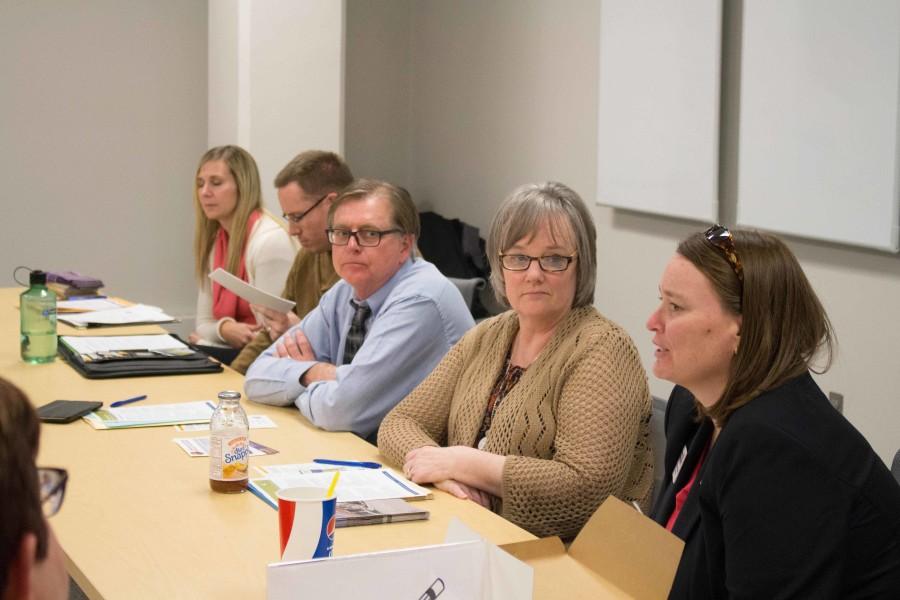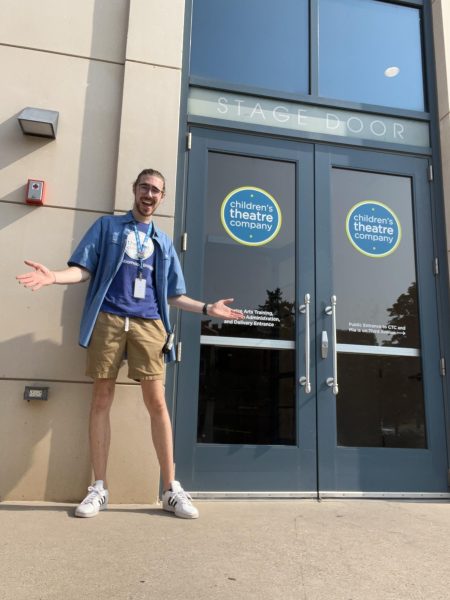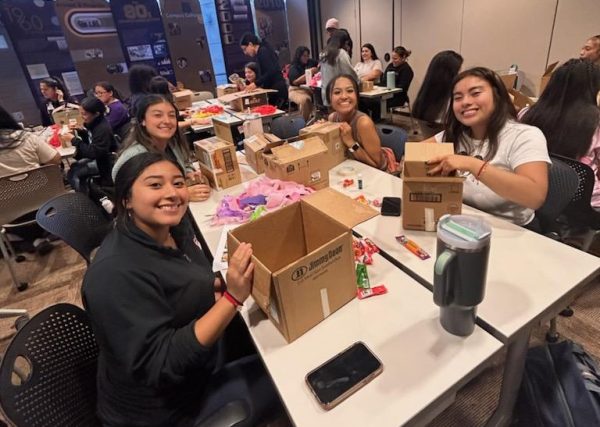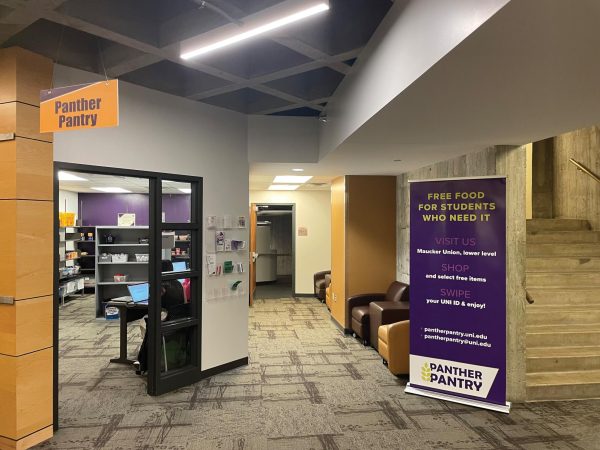Addressing mental health on campus
Representatives from across campus gathered to address mental health on campus.
Apr 4, 2016
In light of the recent mental health issues the university has been facing, members of UNI’s administration have started the conversation on how to provide information and resources to those that need it.
Members of the campus community came together for a forum to discuss some of the resources the university provides for students, faculty and staff.
The panelists on the forum included five representatives: Leslie Williams, Dean of Students, David Towle, director of the counseling center, Debby Ferguson associate director of student wellness, Mark Rowe-Barth, associate director of student wellness and Therese Callaghan, employee health and well-being coordinator in human resources. Several faculty members and a few students were also present and provided feedback on the programs the university has implemented, as well as things they hope to see in the future from the university concerning mental health issues.
Williams explained her role on the panel as the advocate from the student affairs department, and she discussed many of the resources that are accessible to students and faculty on campus. This included more than a dozen campus ministries located near campus, residence hall staff and even the Dean of Students’ office.
“These are some of the things available to help students…and what you can do to help yourself when you’re dealing with these students coming to you with all of these issues,” Williams said.
Ferguson discussed resources at the student health clinic for students that have any sort of needs relating to medication.
The clinic currently has a part time psychiatrist available every Wednesday, a full time psychiatric nurse practitioner, and, more recently, a part time psychiatric nurse practitioner.
Just this semester, the student health center proposed to bill students for psychiatric services in the fall of 2016. Previously, psychiatric services were free of charge.
On average, 125 students are referred for medication, and a third of the students at the counseling center are already on medication for mental health issues. Because of this, the student health clinic works closely with the counseling center.
Towle talked about the services the counseling center provides and the increased use of the afterhours telephone counseling program that has been increasingly used in the past year.
If a student, faculty or staff member is not available during hours of operation (Monday to Friday, 8 a.m. to 5 p.m.), they are encouraged to use this service.
Towle also disclosed that 850 students each year, on average, seek services from the counseling center for a variety of issues ranging from anxiety to substance abuse or eating disorders.
“We have a variety of people that students can see,” Towle said. “I think that’s a good thing too, so [students] can get matched with a counselor that will be the most helpful to them.”
Rowe-Barth went into detail about the mental health advocacy committee, which came about in January of this year. He said that thanks to this committee, several opportunities opened up for students, faculty, and staff to become involved in mental health awareness and support.
These opportunities included: One is Too Many, a suicide prevention effort; Active Minds, a rekindled organization that promotes dialogue about mental health and its resources on campus; Art Can Help, Out of the Darkness, a walk for suicide awareness on April 16 and the spring into wellness event which took place the week before spring break.
Rowe-Barth explained that these were great ways to get involved and “play a role in creating a culture of care, connectedness, and belonging on campus.”
Finally, Callaghan, focused on services provided to employees of the university through the Employee Assistance Program (EAP).
This program provides six in person counseling session for university employees at different locations across the nation along with resources for life coaching, financial consultation, legal consultation, and more.
“I found that EAP is one of those things that people are like ‘yeah I’ve heard of that, I know of that,’ but when it’s you the individual that needs to use it sometimes you forget about that service,” said Callaghan.
Callaghan also discussed the Family and Medical Leave Act, which highlighted how an employee qualifies for 12 weeks of unpaid, job-protected leave and how it relates to mental health issues.
Following this, an open discussion started in which both faculty and student asked questions and voiced their opinions on topics that were previously discussed. These varied from mental health and Family Education Rights and Privacy Act violations to resiliency building in the classroom.
Those in attendance agreed that they must be more receptive of students and their mental health state as well as provide support to these students to help them succeed.



















